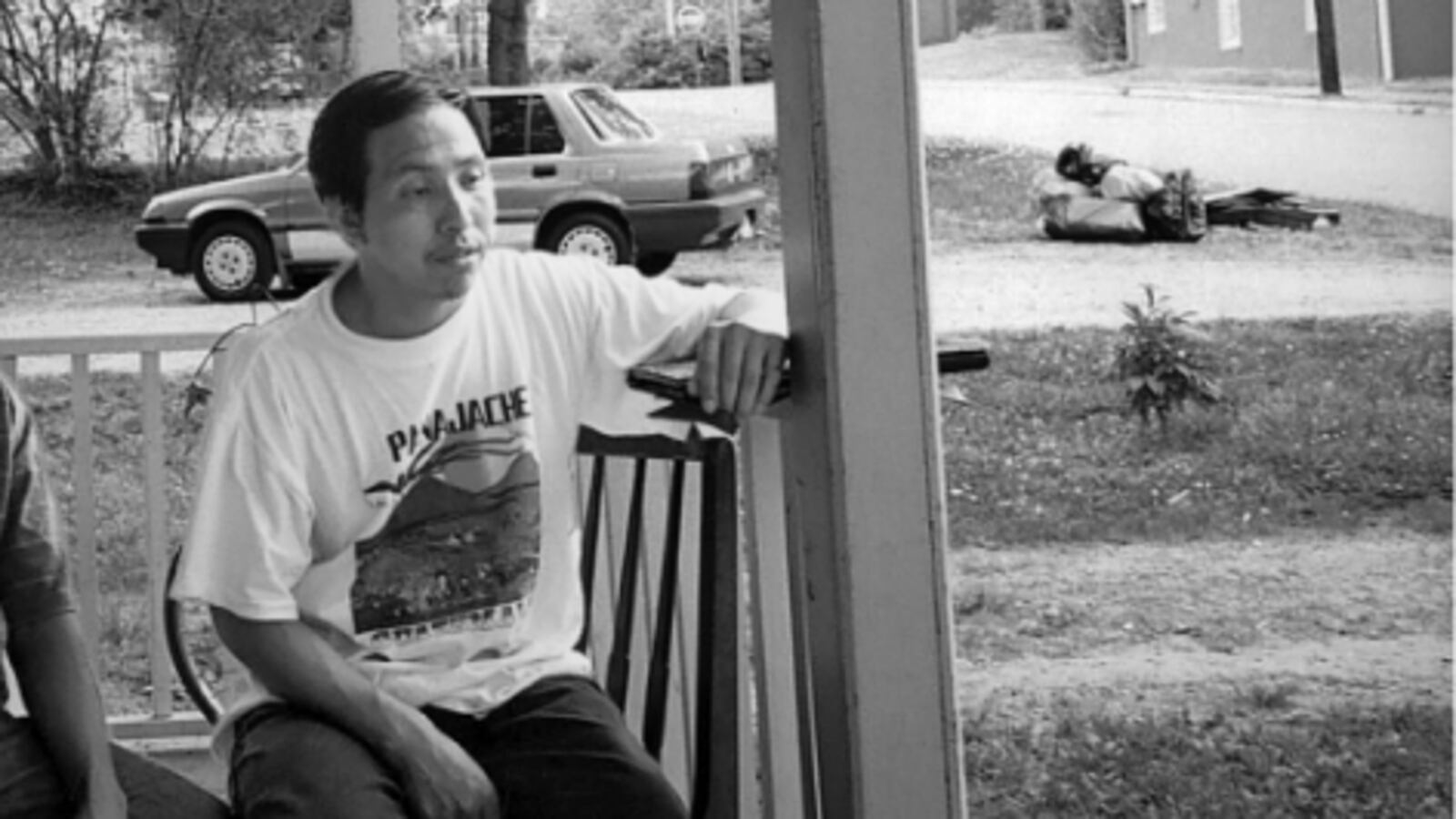On Aug. 7, in the largest worksite immigration enforcement action in U.S. history, ICE agents swooped down on seven Mississippi plants, detaining 680 workers. In a little-reported addendum to the Mississippi actions, ICE also reached into North Carolina, arresting five workers on the same day at Morganton’s Case Farms plant—one of whom was José Samuel Solis Lopez.
These days, we hear a lot about the “border crisis,” Trump’s wall, and the politics of immigration reform, but too seldom do we see the stories behind the headlines.
I first met José in 1997 while researching the history of a labor struggle in which he had been intimately involved over the previous few years. From 1993 to 2001, the largely immigrant and predominantly Guatemalan Maya workforce at Case Farms had regularly protested against a factory regime that paid them little respect as human beings. Low wages, the speed of the processing lines, denial of bathroom breaks, and arbitrary dismissals were precipitating issues in a recurrent set of strikes. Yet, try as they might, the workers, whose few local allies included the Legal Services office and Morganton’s St. Charles Catholic Church as well as the Laborers’ International Union, never overcame the hostility of Case Farms’ management. Indeed, the chief sources of grievances continue to this day. An investigation by Oxfam America cited lack of bathroom breaks as a major complaint as late as 2015, and the company was also singled out in a 2017 New Yorker exposé of “exploitation and abuse at the chicken plant.”
It took a special kind of courage for a rank newcomer like 26-year-old-José to step into the leadership of the incipient rebellion at the 500-person factory in 1993, but it was courage that had already been nurtured by strong family commitments to community service. His uncles had once managed a thriving garlic and onion cooperative in Aguacatan, an indigenous, linguistically isolated village perched high in the mountains of western Guatemala. With his family’s resources, Jose had enjoyed several years of schooling in Guatemala City and looked forward to a future career as a teacher. By the mid-1980s, however, a deepening civil war and growing economic straits totally upended village life and sent thousands to find work in the U.S. After picking crops across the Northwest and Florida, one uncle found stable employment in Morganton’s poultry plant, and Jose followed a few years later.
Like his uncle, José qualified for a U.S. work permit under an interpretation of the Refugee Act of 1980 and a subsequent special window for Guatemalans and Salvadorans created by a court ruling in 1991. He soon emerged as a leader of the young activists sustaining the Case Farms protests. Within the Spanish-speaking rank-and-file committee meeting regularly at St. Charles Church, he connected his own experience to a wider struggle:
“Democracy is a good thing,” he said of his disaffection from the government of his native country, “but there is not democracy in the Central American states. [Democracy means] to live free, work tranquilly, to have work and enough salary to live.”
Yet he exulted in the new workplace leadership of his fellow Aguacatecos: “we [Aguacatecos] are all united, no one is left behind.” In that spirit he also served as secretary of the directiva, effectively a burial association formed to raise money for the transplantation of bodies of deceased workers back to Aguacatan as well for the sustenance of young family members with deceased parents.
Aside from birth and residency criteria, the Cambridge English Dictionary defines citizenship as “the state of living in a particular area or town and behaving in a way that other people who live there expect of you” and also as “carrying out the duties and responsibilities of a member of a particular society.”
By these measures, José proved a model citizen. He worked hard, paid his taxes, and took care of himself and his family, even managing to send two daughters to college. Moreover, in a situation of great adversity and high personal risk, he stepped forward to defend the rights and advance the welfare of the community around him; he continued to serve as secretary of the Aguacateco directiva. He neither expected nor asked much of his adopted country—basically just the chance to earn a paycheck and be free from government and employer intimidation.
Yet, like many would-be refugees from Central America in the 1990s (and again today), José had never secured a legal certification of U.S. citizenship. By 1997, the legal window for Guatemalans and Salvadorans had closed before Jose could establish permanent status. He stayed on even after an initial deportation order in 1996 but never tried to ‘disappear’ by inventing a new name and identity. Jose was thus an easy target for an administration that wanted to make an example of the millions of workers in the U.S. without good papers.

As if to justify the recent ICE sweeps, this week President Trump told a crowd in Fayetteville, “North Carolina has released thousands of dangerous criminal aliens into your communities and you see it. The charges against these free criminals include sexual assault, robbery, drug crimes and homicide. Murder!”
As part of the collateral damage of such immigrant fearmongering, José, now 52 and suffering from diabetes and high blood pressure, has been sitting, awaiting deportation, in the Stewart Detention Center in Lumpkin, Georgia.
In the conclusion to my 2003 book, The Maya of Morganton, I wrote: “It is common to talk about immigrants and the American Dream as if the latter were something that U.S. citizens already possess and others have to strive for. Yet, when it comes to the prospects for American democracy at the dawn of a new century, the welfare of new immigrant labor forces will likely tell us as much about our own dreams as about theirs.”
As José’s story underscores, the verdict is in. When it comes to immigration, the remains of our dreams are bathed in tears.





